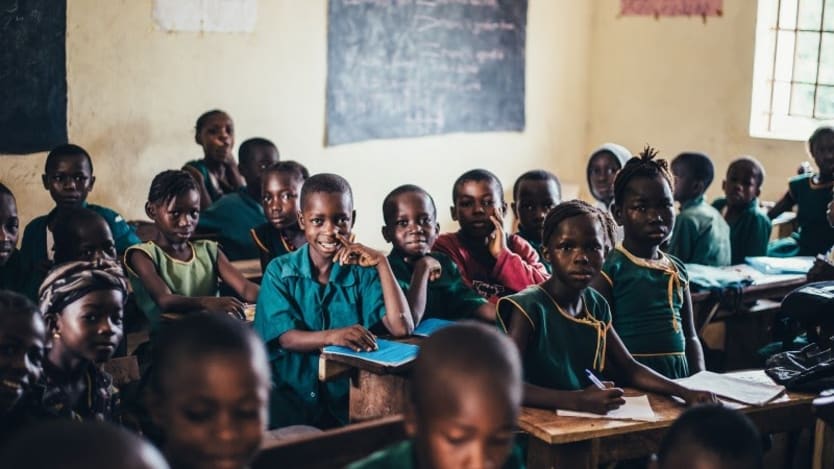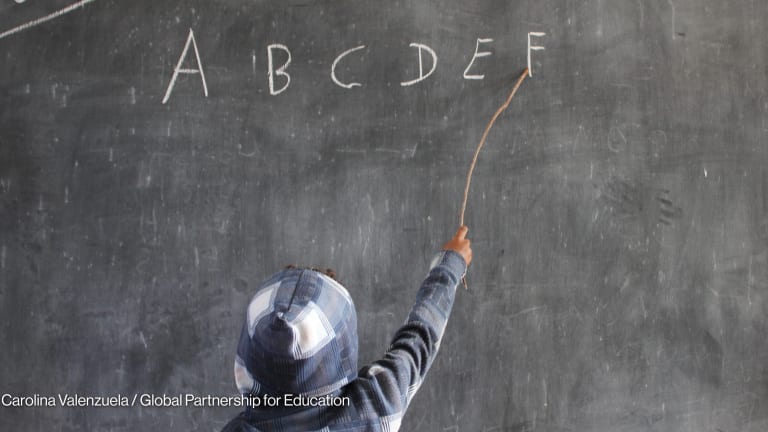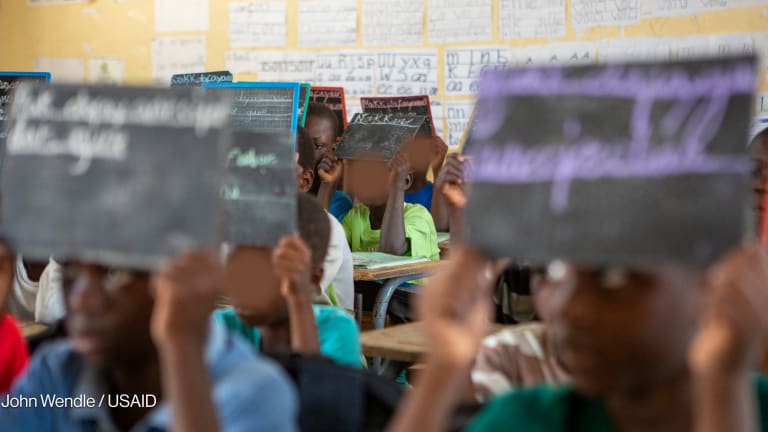
When schools began shutting worldwide to combat the spread of COVID-19, a deepening global learning crisis followed. A generation of children and young people — up to 1.5 billion of them, at one point — stopped going to school.
Many girls won't go back to school when lockdown is over
Experts worry the pandemic could roll back decades of progress on gender equality and girls' education.
Like the school closures themselves, it is a unique time for the education sector. There have been rapid changes in policy, an increase in learning tools, impressive school leadership, and collaboration between teachers and parents — all of which have enabled children to continue learning.
Innovative pathways have emerged from far beyond the four walls of a classroom — from videos, songs, and games to WhatsApp groups and “zero-rated” education portals. In countries where online learning remains out of reach for many, a mix of radio, television, and mobile technology, or home delivery of printed learning materials, has kept learning going under the most challenging of circumstances.
These developments are making us rethink traditional views on how we “do education.” When schools reopen, we cannot return to business as usual. We must instead use this moment to catalyze transformation in our schools.
Here are a few ideas on how this can happen:
Keep up the momentum for new partnerships and innovation. The challenge to keep children learning during the pandemic has opened up myriad pathways and tools at pace. A driving force of this are new partnerships formed to bring solutions to the table — from app developers and mobile companies to parents and teachers.
Microsoft and UNICEF, for example, developed the Learning Passport, a global digital platform that gives children remote access to the national curriculum. Such partnerships bring expertise, innovative ideas, and resources to address heavy lifting challenges in education.
The digital divide that seriously hinders access to learning opportunities, as laid bare by this pandemic, is one such challenge. GIGA, an initiative led by UNICEF and the International Telecommunication Union, aims to address this problem by connecting every school to the internet. Another challenge is the urgent need to prepare teachers with new tools and training so that we can unleash the potential of blended pedagogical approaches. If we leverage these emerging partnerships in a manner that they sustain, this will profoundly transform education years into the future.
We need to recognize that investing in our children’s education pays dividends in safer, healthier societies.
—Reopen schools with a wide door. This specific moment in time presents a critical window of opportunity to bring more children into education systems, including those who were not in school before the pandemic. It is possible that many children, such as those with disabilities or living in extreme poverty, have not been reached by remote learning during the school closures.
We know from past experience that the longer these children remain out of school, the higher their chances of dropping out completely. Evidence from some countries in West Africa, for example, shows that after the Ebola crisis, girls’ school enrolment did not return to pre-crisis levels. We must be vigilant in making sure that the coronavirus pandemic does not result in children dropping out of school and never returning. If this happens, we are at risk of reversing gains made in increasing access to education.
We thus need to reopen schools with a very wide door and a close eye on bringing the most marginalized children back into school systems. Simultaneously, we must focus on reaching children who were out of school before the pandemic with specific strategies to incentivize enrolment, such as fee waivers for the poorest, adjusted enrolment requirements, and targeted communications to children, families, and communities.
Double down on literacy and numeracy to strengthen learning. Over half of all children in low- and middle-income countries cannot read and understand a simple text by age 10. This crisis still represents the greatest global challenge to preparing children and adolescents for life and work.
Why not reopen schools with a mission to double down on teaching reading and mathematics to the children who need help? Many schools will plan strategies to make up for learning loss with some form of supplementary or catch-up classes, especially for those who may have not been reached by remote learning.
They can make a big push for literacy and numeracy, if even a few hours were devoted weekly to teaching children how to read and do math at appropriate levels. For example, strategies such as individualized support by teachers or accelerated learning programs can make foundational skills a core focus. If schools can find innovative ways to zero in on this goal, it will be a game changer in addressing the global learning crisis.
Invest in services that support children’s well-being. Opening up better schools in a COVID-19 era means investing in services that have become essential for children’s protection, health, and learning, such as psychosocial support services. When children are out of school for prolonged periods in the aftermath of a disaster, they can suffer cumulative losses.
They experience not only a loss of learning but also psychosocial distress that can hinder their successful transition into progressive levels of education. As children rejoin school after months in isolation, many will have faced personal loss and trauma. This time is right for schools to establish services that provide, at the very least, a basic form of psychosocial support to aid children’s reintegration into classrooms. Investments in such services have multiplier effects and will build more resilient education systems in the long run.
At this time, governments are rightly concerned with reopening economies and bolstering health systems to combat the COVID-19 pandemic. But we need to recognize that investing in our children’s education pays dividends in safer, healthier societies. And therefore it cannot ever be compromised.








